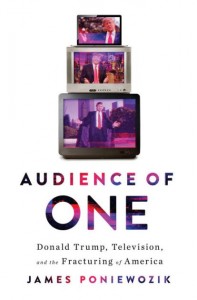My column for Caíman Cuadernos de Cine, submitted on March 21, 2019. — J.R.

It’s tiresome to keep hearing from several American colleagues what a lousy year 2018 supposedly was for movies — “movies” being virtually equated with Hollywood crap in much the same way that “the world” is often equated with the U.S. (with Cuarón, Farhadi, Pawlikowski, and a few others occasionally accorded the dubious status of honorary Americans, usually on the basis of their Oscars). Given how much non-American cinema one can see nowadays via streaming, this is an inexcusable way of allowing the big companies to keep their stranglehold on what passes for film culture, making it easier than ever to miss out on what matters.

Even so, I’m embarrassed to admit that I didn’t recognize the brilliance of Christian Petzold until recently, when I saw Transit (2018) — having previously seen only his Ghosts (2005) and Barbara (2012). Having now accessed, in swift succession, his Phoenix (2014), Yella (2007), Jerichow(2008), and Barbara again — I feel that it’s the dreamlike, hallucinatory surfaces (both aural and visual) of Yella, Phoenix, and Transit more than the literal places and spaces of Jerichow and Barbara that best capture Pertzold’s investigations into historical and existential identity. Read more

The central and irreducible insight of James Poniewozik’s brilliant book — making it for me the only account I’ve read of Donald Trump that makes his poisonous career both legible and explicable — is to view that trajectory as part of the tainted history of television, and to see Trump as a hapless victim of that history as well as a sinister perpetrator.
This is an insight that I’ve already had glimmers of whenever I’ve blanched at how much ungodly fun Rachel Maddow has been deriving from the cornucopia of Trumpian horrors, and how creepily her nightly boasts about what a “big” show she has in store for us replicates the weekly promises of Ed Sullivan on his variety show between 1948 and 1971. But the fact that I’ve never watched “reality TV” means that I need someone like a New York Times TV critic to show me how dutifully and consistently Trump has replicated its gestures, assumptions, and attitudes as President, and how doggedly both Fox TV and MSNBC have remained in sync with and in thrall to its very fibers.

This is also part of the persuasive thrust of Matt Taibbi’s recent Hate Inc.: Why Today’s Media Makes Us Despise One Another, which claims to be inspired by Edward Herman and Noam Chomsky’s Manufacturing Consent. Read more
My column for the Spring 2019 issue of Cinema Scope. — J.R.

In retrospect, I’m sure that an important part of what excited me about John Updike’s second novel, Rabbit, Run, when I read it in high school circa 1960, was the fact that it was recounted in the present tense, thus giving it some of the immediacy of a movie—rather like the thrill of the opening chapter of William Faulkner’s Light in August, which I first encountered around the same time. As Updike himself later noted, the movieness of his present tense was a conscious strategy — he even thought of subtitling the novel A Movie — although ironically, it’s precisely this sense of now and its location in the Eisenhower era that is most conspicuously absent from Jack Smight’s flatfooted 1970 movie adaptation (available on DVD from Warner Brothers’ Archive Collection), which doggedly tries to be “faithful” in its own misguided fashion, even to the point of updating the action from 1959 to the present, but only comes across as conventionally shopworn as a consequence. What’s clearly lost isn’t only Updike’s sense of history, pop-culture references and all, but the vibrant weight of the eponymous hero’s existential decision-making. Read more





